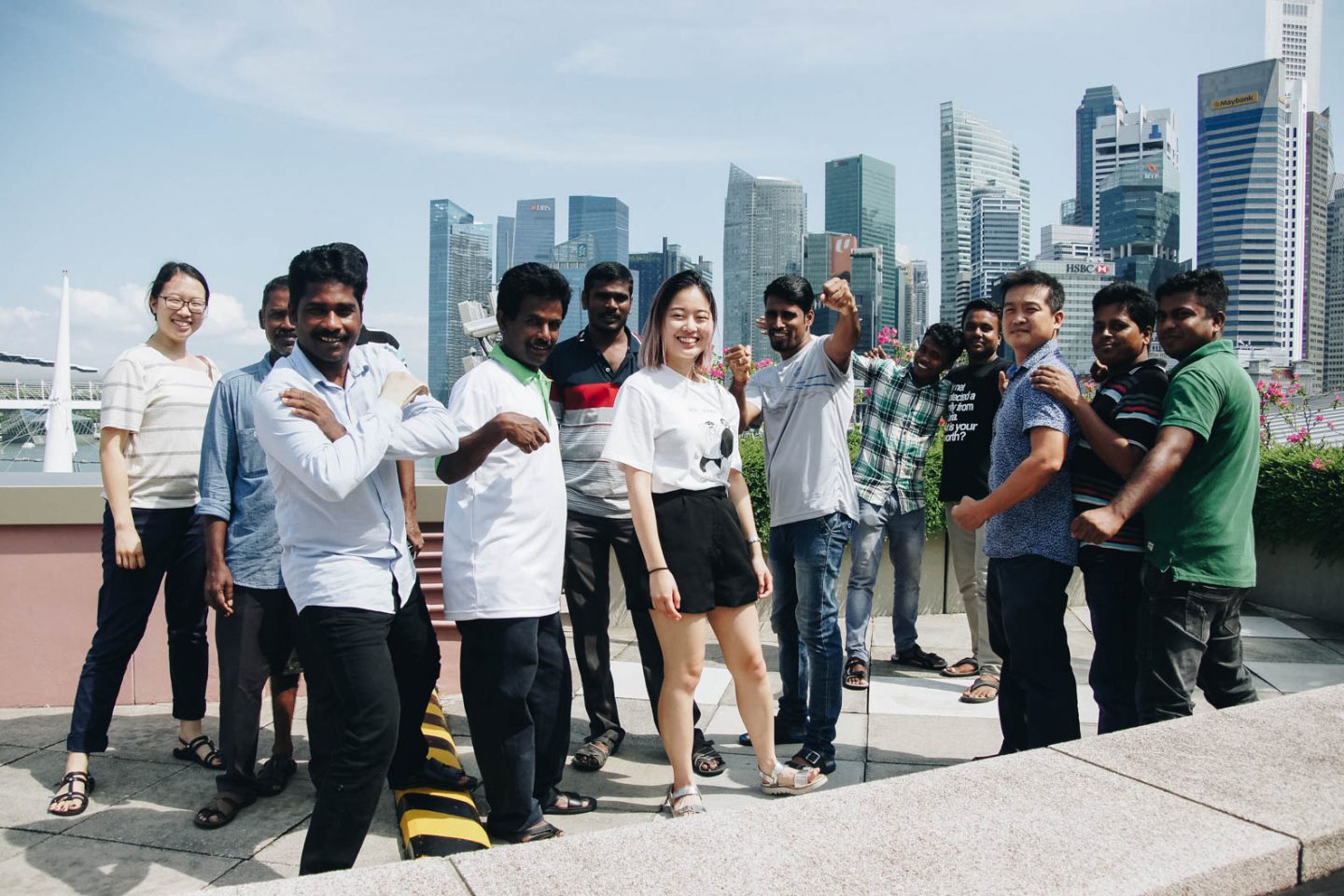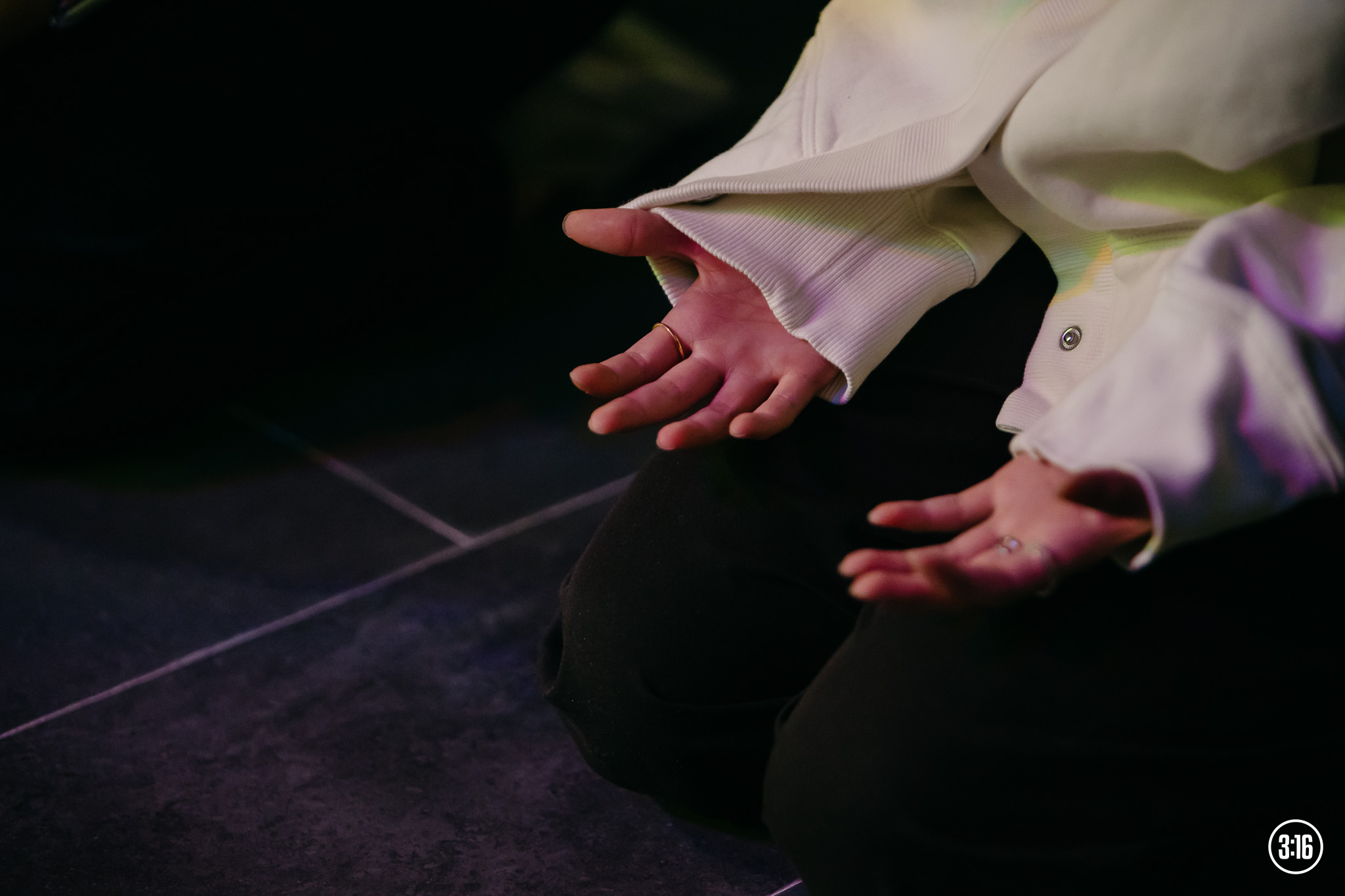Bright lights, red lanterns and overplayed Chinese festive songs — Chinese New Year is back! But have you ever considered this: Not everyone can return home to be with their families this festive season.
He or she could be a colleague who recently fell out with family. Indeed, he might be a friend scheduled to work during the celebrations. Or she might be someone’s daughter who’s studying overseas and can’t afford to return home.
There are so many “aliens” (Deuteronomy 10:18-19) in our midst. Away from their families, they’re in our everyday lives: Along the roads, in coffee shops – perhaps even working in the same company as us!
Migrant workers. Have you ever stopped to think about them?
Recently, I visited Healthserve, a non-profit organisation that provides holistic care to disadvantaged migrant workers. I wanted to find out what life looked like for migrant workers unable to return home during the festive season.
“Some migrant workers wanted to go back to their home countries because their parents passed away — but couldn’t.” This was just one of the regrettable anecdotes shared with me by Yvonne Loo, a case worker with Healthserve.
And given that the migrant workers don’t even fly home despite family crises, Yvonne told me there’s no chance they could return for festivities. Special Pass holders are migrant workers who have had their work permits cancelled. They are usually workers who got injured and subsequently dismissed by their companies before their contract ends.
Yvonne noted that she has yet to come across a beneficiary of Healthserve who is able to return home as and when he wants.
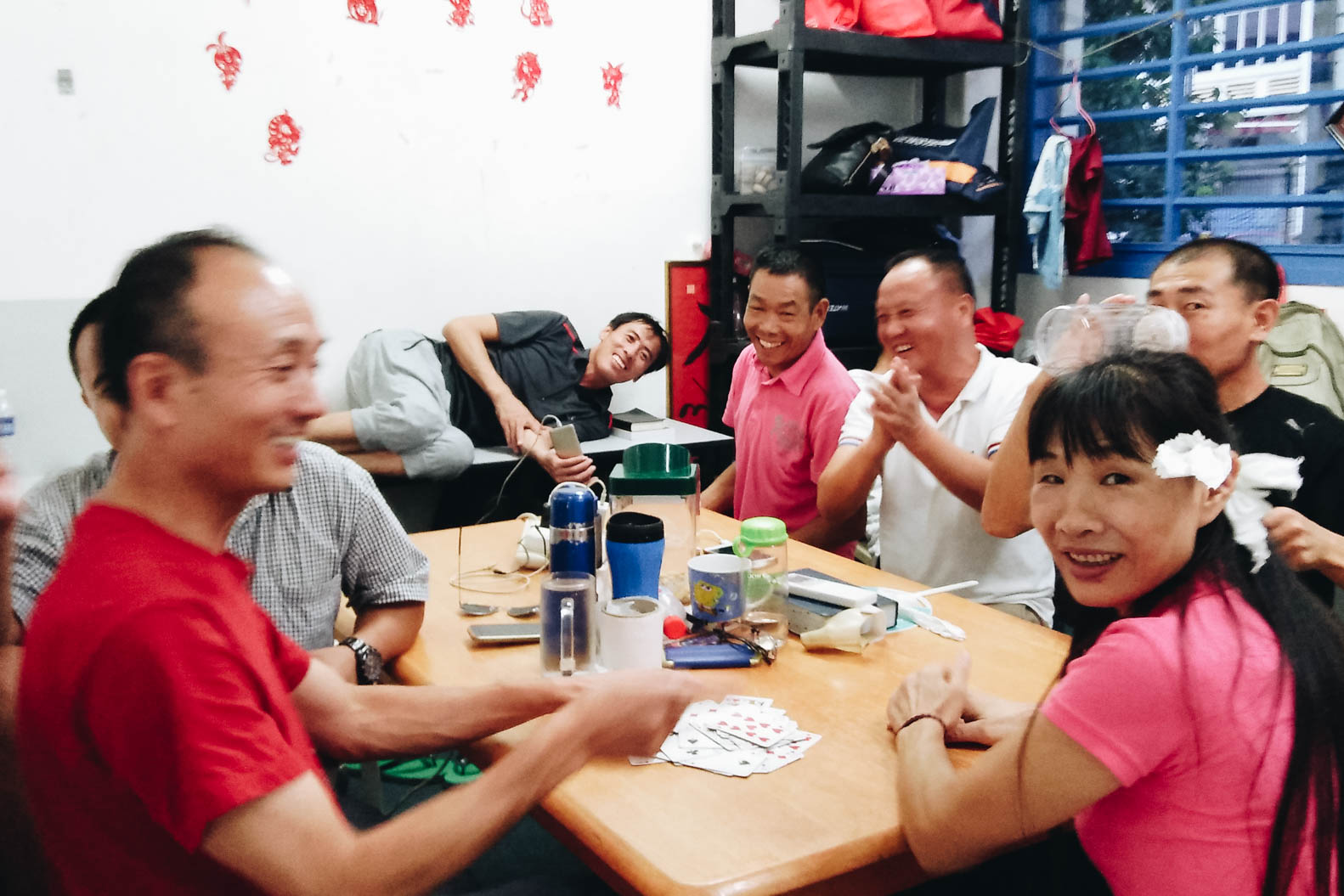
Instead, what most migrant workers resort to is connecting with their families online: Text messages and video calls are the order of the day. But in person, they celebrate festivities with their immediate neighbours — fellow foreign workers.
Ye Hong Wei, a migrant worker I met at Healthserve, described his longing for home: “想家肯定是想家。但是没有办法。作为家庭主力,为了家,没办法。” I definitely miss home, but as the sole breadwinner of my family, there’s nothing I can do.
I also spoke to injured workers, who are awaiting delayed medical compensation: “不敢抱这个希望。” I don’t dare hope I’ll be able to head home soon.
To meet their needs, Healthserve organises activities for migrant workers to get together. The most recent event was a dumpling-making session with university students, where the Chinese migrant workers showed the latter how to prepare dumplings.
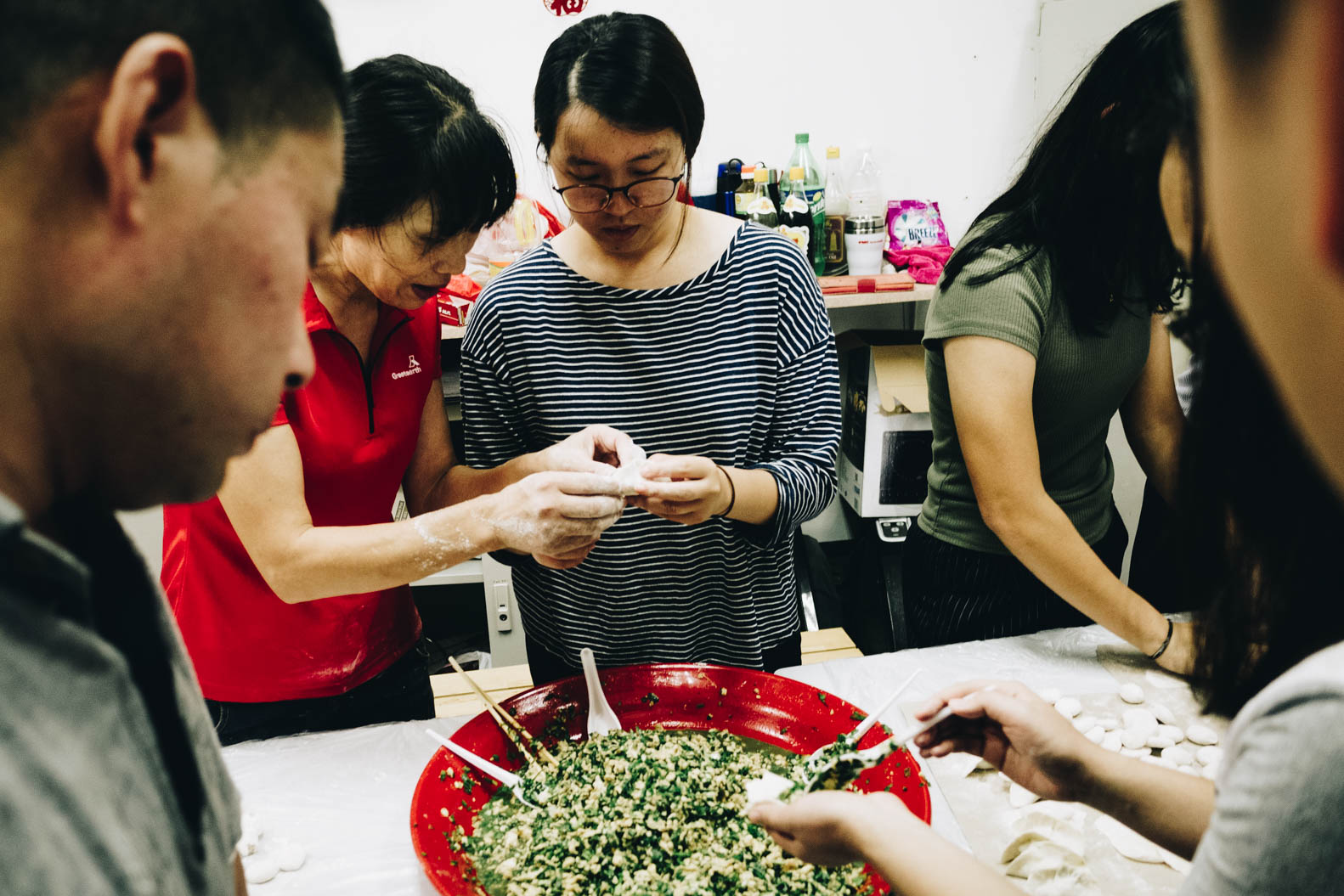
But beyond just having an event to go to, what migrant workers really benefit from are the relationships forged.
Willy Lau, who works on developing volunteer engagement in Healthserve, noted the importance of relationship building: “We want more of that between the volunteers and beneficiaries, where they get to know them and even share life with them.”
Yvonne and Willy highlighted some benefits migrant workers experience through spending time with the volunteers.
Firstly, it boosts the migrant worker’s self-esteem: When migrant workers arrive in Singapore, their value becomes measured by their productivity. Do they work without complaining without giving employers problems, and with their best efforts?
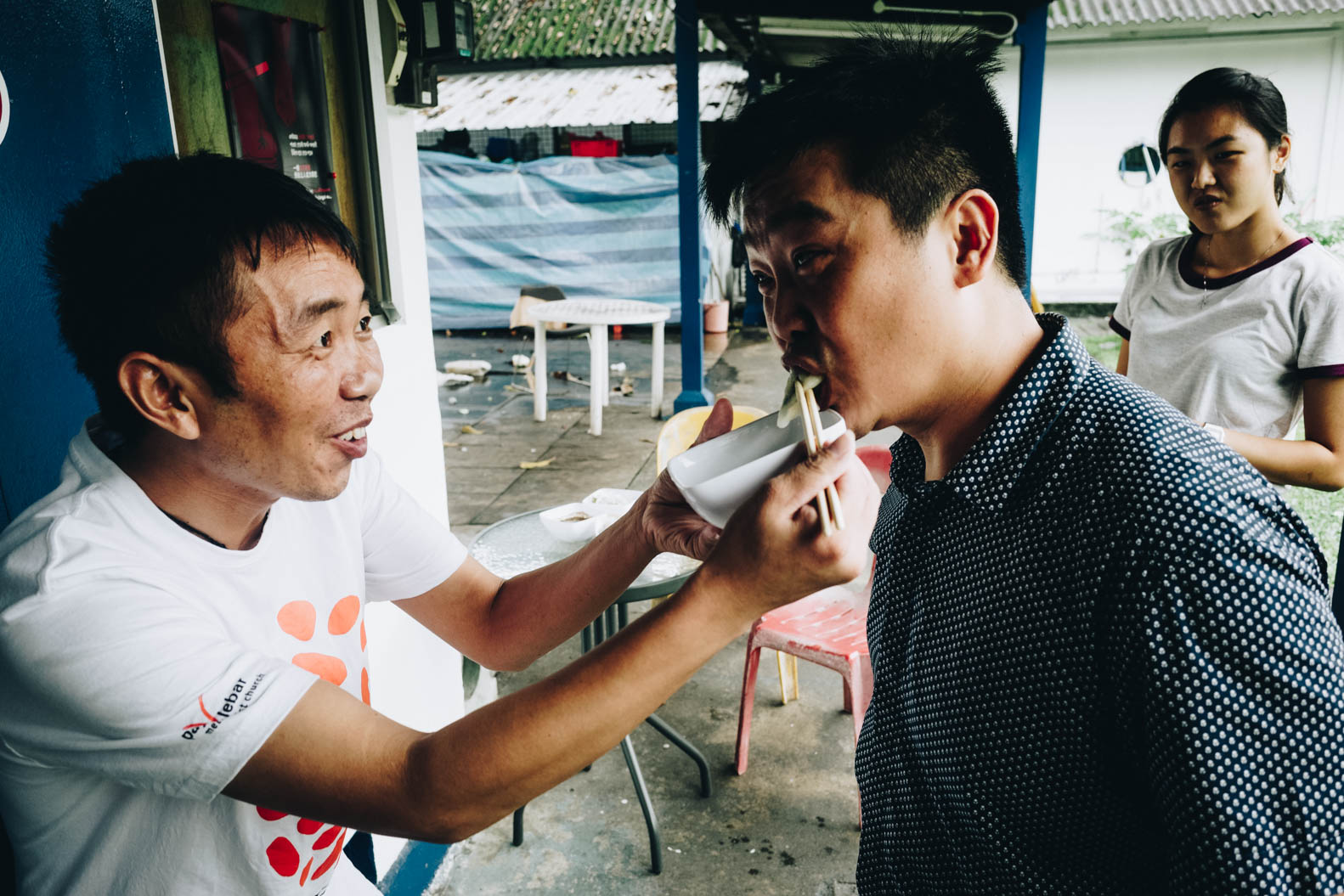
But at Healthserve, they are valued differently. They receive care and attention. They experience friendships with volunteers so deep, that some volunteers even send the migrant workers off at the airport when it’s time for the latter to fly home.
Yvonne told me: “We don’t ask volunteers and staff, ‘Are you coming for to send him (migrant worker) off?’ We just say this person is leaving. That’s sufficient for them to come on their own accord because they’ve already built a relationship with the migrant worker. So they really want to come.”
The strong bonds formed between the migrant workers and volunteers help the former leave Singapore on a positive note, no matter the challenges faced while here.
Once you have a mindset that this person is of less worth, you will have a tendency to want to give, and not also receive.
Willy added, “Once migrant workers come through the gates of Healthserve and experience overwhelming genuine friendship, when they go back to their countries, they start to pay it forward to their neighbours.”
When volunteering, we often merely meet the physical needs of the person. But as Christians, it has to go beyond that. Willy pointed out, “We are all relational beings. God is relational to us as well.” He also reminded me that humility is needed when befriending migrant workers.
“Generally, everyone comes with the mindset of ‘Migrant workers so poor thing, I want to help them. How can I help them?’ But once you have a mindset that this person is of less worth, you will have a tendency to want to give, and not also receive.”
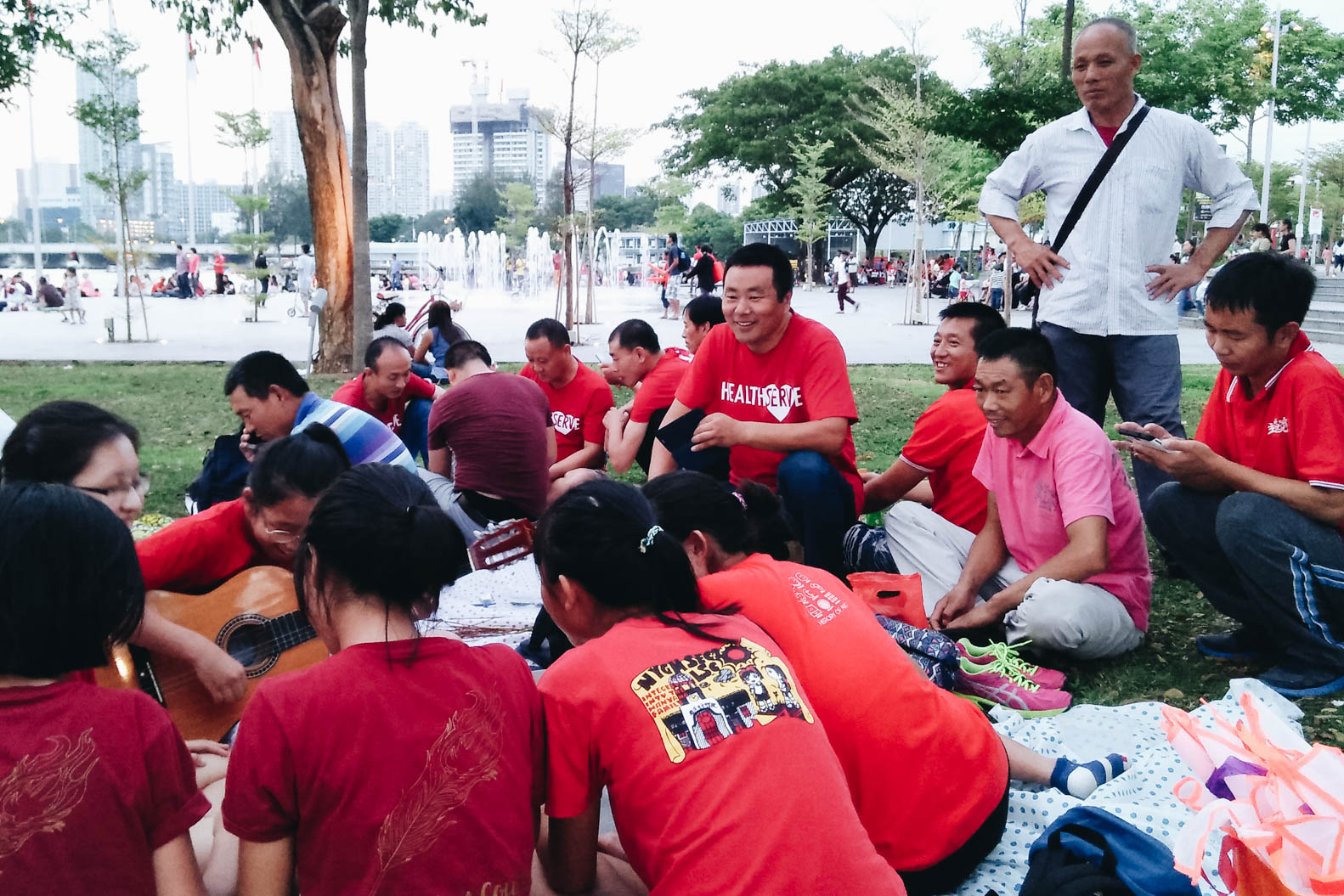
He told me of a group of Junior College students who wanted to do an interview with a migrant worker at a coffee shop, who were all surprised when the migrant worker stood up to buy drinks for them.
“They were like, ‘Shouldn’t we be the ones to offer him drinks?’ But now he’s buying them drinks … We always have assumptions and narrow views of things. But if we are able to open our hearts, minds and be humble, we will be able to learn and receive.”
As I left Healthserve, I found myself reflecting. Was I truly willing to get to know migrant workers for who they really are?
This Chinese New Year, Thir.st is partnering Healthserve to provide opportunities where you can befriend a migrant worker. It can be as simple as treating him or her to a meal.
Whoever you choose to invite for a meal this year, remember that Jesus Himself frequently ate with the marginalised in society so He could minister to them. There’s always space for one more rice bowl at the Father’s table.
If you’re interested, sign up here! It doesn’t matter if you’re doing this alone, with your family or your cell-group. We look forward to hearing your stories.


